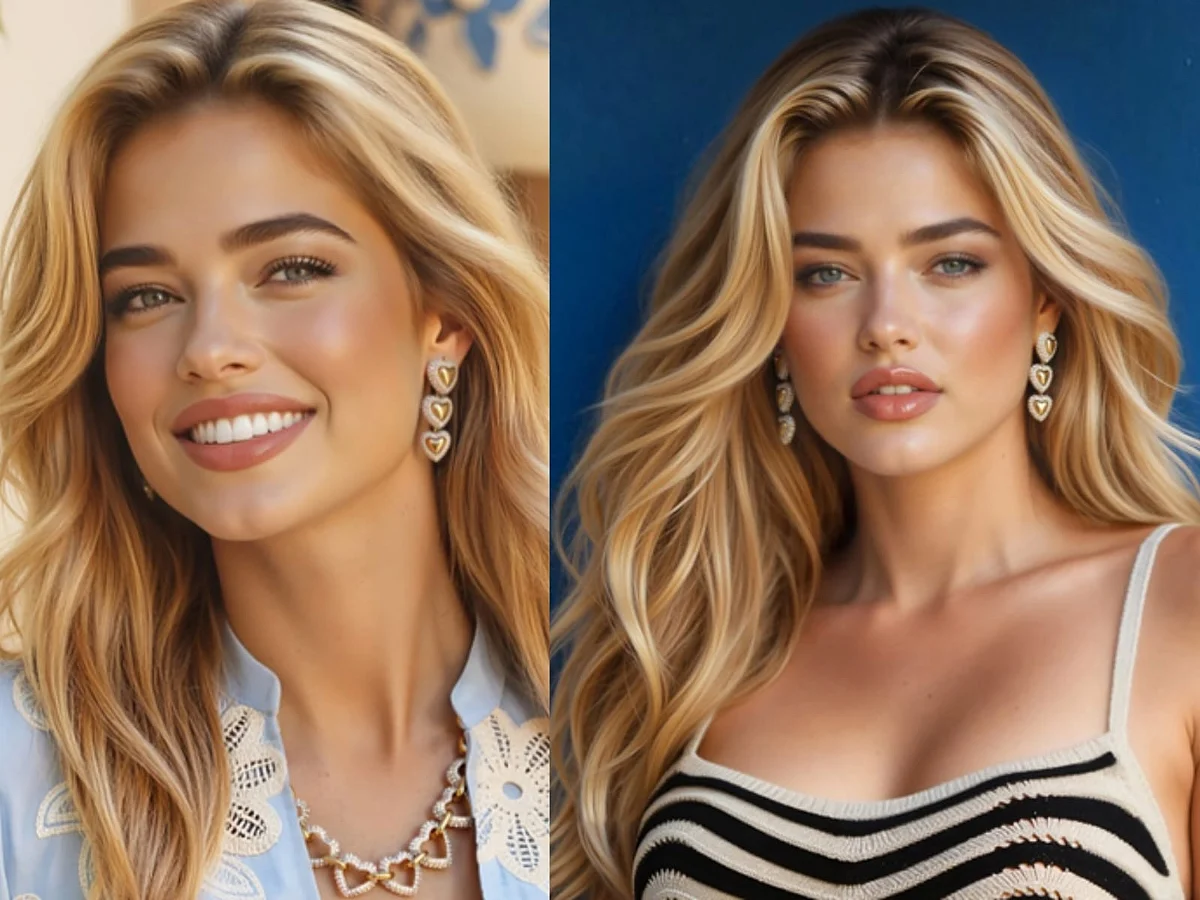Dubai: In a move that has sent ripples across the global fashion industry and sparked an intense debate on the intersection of technology and creativity, Vogue magazine recently unveiled an advertising campaign for Guess featuring an entirely AI-generated model. This pioneering, yet controversial, stride into the digital frontier marks a significant moment, challenging conventional notions of beauty, authenticity, and the very future of human talent in high fashion.
The campaign, which quietly debuted across select digital platforms before igniting a firestorm on social media, showcased the AI model in a series of striking poses, effortlessly embodying the signature allure of the Guess brand. The digital creation, meticulously rendered with photorealistic precision, displayed flawless skin, perfect hair, and an adaptable physique, allowing for seemingly limitless creative direction without the logistical constraints of traditional photoshoots. For many, it represented the cutting edge of innovation, a glimpse into a future where campaigns can be conceptualised and executed with unprecedented speed and cost-efficiency.
However, the initial awe quickly gave way to a torrent of criticism and apprehension. The global fashion community, from supermodels and photographers to stylists, swiftly voiced their concerns. At the heart of the debate lies a fundamental question: what does the rise of AI models mean for human talent and the authenticity that defines the art of fashion?
Is AI a looming threat for fashion models?
One of the most immediate and palpable anxieties revolves around job displacement. Critics argue that if AI models can convincingly replicate or even surpass the visual appeal of human models, an entire segment of the industry including models, makeup artists, hairstylists, and even photographers could face significant issues. Supermodel Naomi Campbell, though not directly commenting on this campaign, has been a vocal advocate for human connection in fashion, a sentiment echoed by many who believe that the unique charisma, emotional depth, and inherent humanity of a real person cannot be replicated by algorithms, no matter how advanced.
Beyond economic implications, the ethical and philosophical dimensions of AI models are being rigorously examined. Concerns have been raised about the perpetuation of unattainable beauty standards. While human models represent a diverse range of body types and features often idealised, AI models can be programmed to embody a constantly evolving, often hyper-perfected, aesthetic. This raises fears of contributing to body image issues among consumers and further detaching fashion from reality. There’s also the question of creativity: does relying on AI for a model reduce the collaborative artistic process that traditionally defines a fashion shoot, turning it into a more technical, less organic endeavour?
AI in fashion, however, highlight the undeniable advantages. The ability to create campaigns rapidly, without the need for extensive travel, complex logistics, or large on-set crews, offers a compelling proposition in a fast-paced, cost-conscious industry. AI models can adapt instantly to various lighting conditions, settings, and styles, providing unparalleled flexibility. Furthermore, some argue that AI offers a new avenue for creative expression, allowing designers and photographers to explore fantastical or conceptually challenging ideas that might be difficult or impossible to achieve with human models. The potential for greater diversity, enabling the creation of models representing any imaginable demographic or aesthetic, is also cited as a benefit, though critics counter that this 'diversity' is superficial if it lacks genuine human representation and input.
Guess and Vogue have remained largely quiet amidst the controversy, allowing the campaign to speak for itself while monitoring public reaction. Their silence, however, only fuels speculation about their long-term strategies and whether this debut is a one-off experiment or the thin end of a wedge that could fundamentally reshape how fashion is presented to the world.
The debate is far from over. As AI technology continues its rapid advancement, the fashion industry finds itself at a critical juncture, forced to grapple with complex questions that extend far beyond aesthetics. The Vogue-Guess collaboration featuring an AI model has not just launched a campaign; it has launched a global conversation about humanity's role in a progressively automated world, ensuring that every click and every comment adds another layer to this unfolding narrative.
Sign up for the Daily Briefing
Get the latest news and updates straight to your inbox
Network Links
GN StoreDownload our app
© Al Nisr Publishing LLC 2026. All rights reserved.
